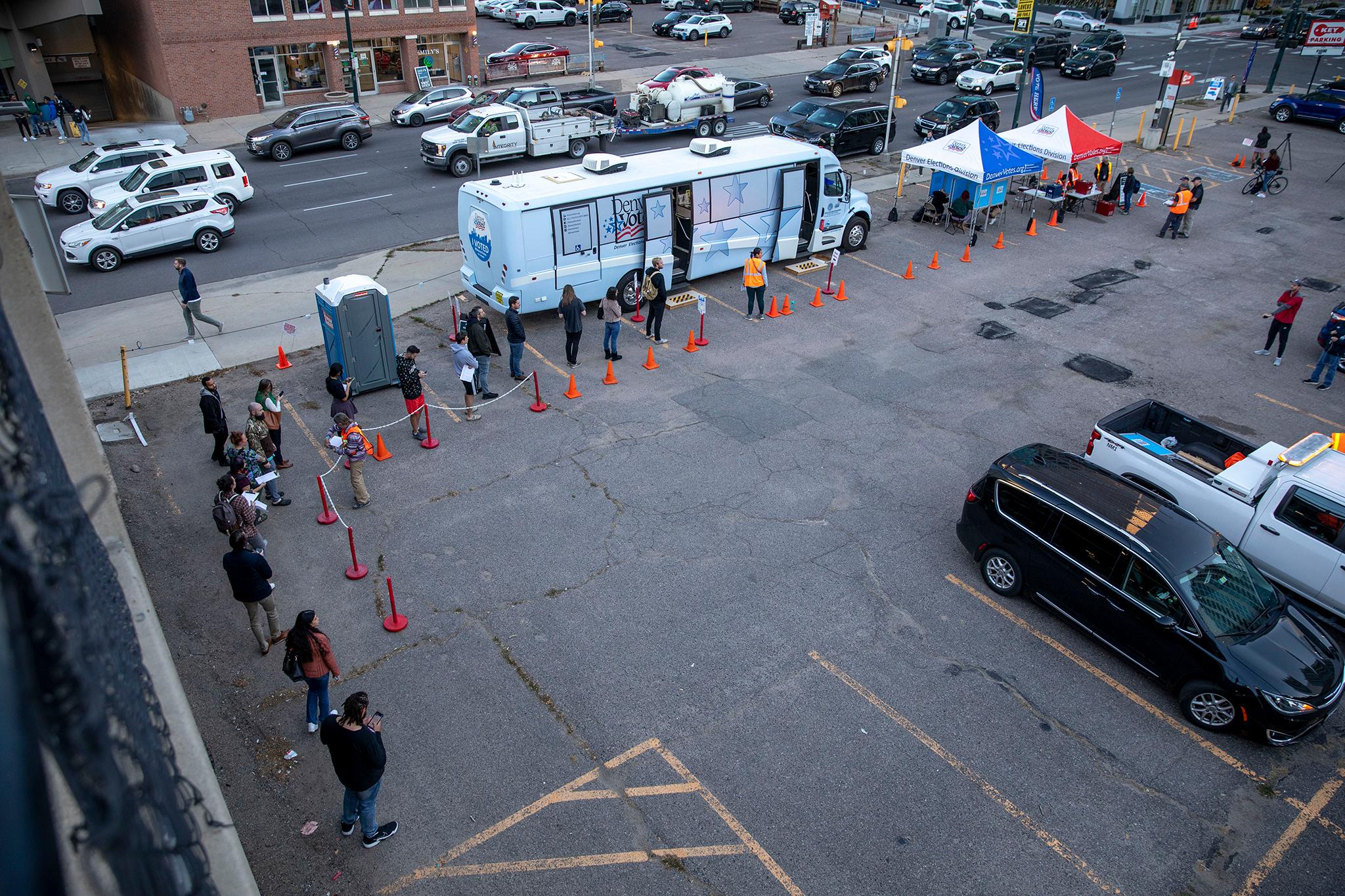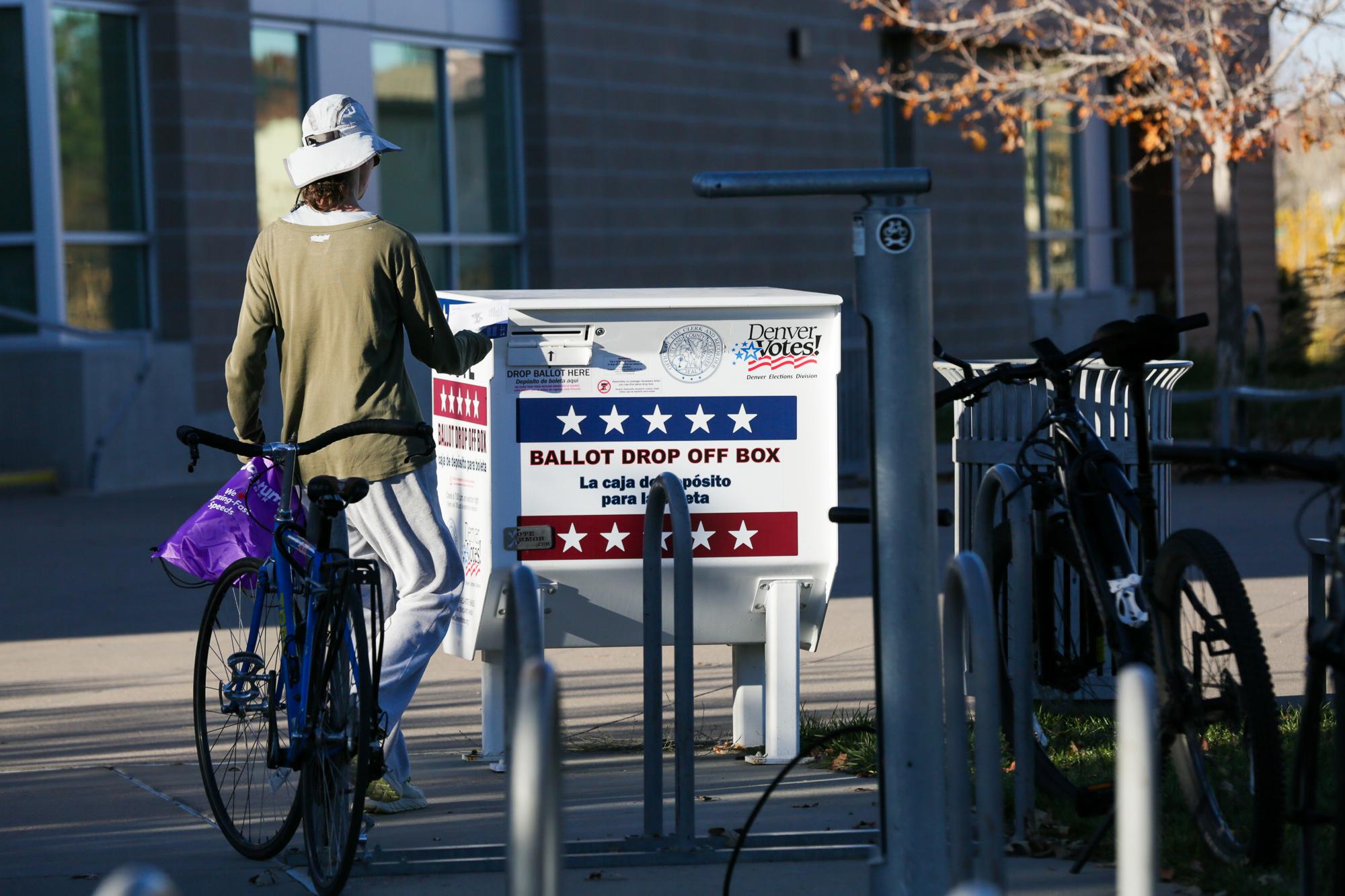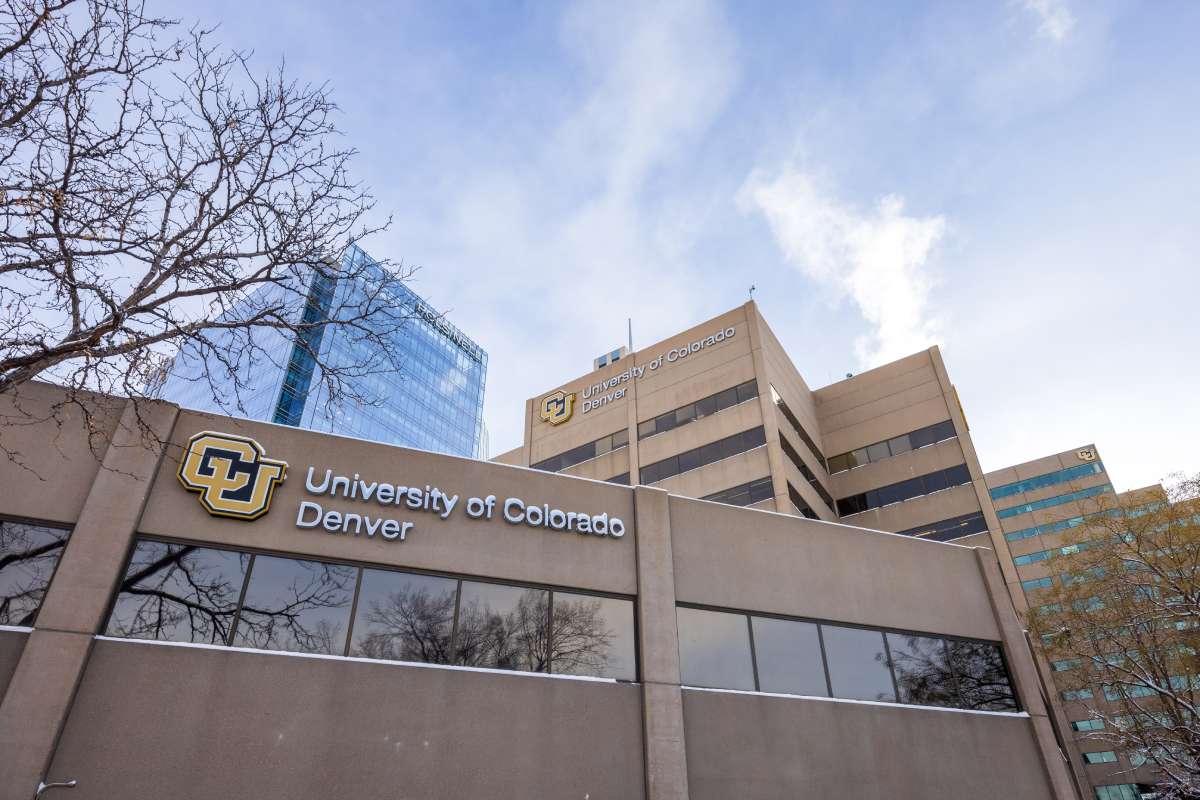
The last few years have been tough ones for the officials who run Colorado's elections; in the wake of the 2020 election they’ve endured threats and hostility, had to push back against misinformation and disinformation, and been left always wondering — what comes next?
This week, with the 2022 midterm election in the rearview, county clerks met for their winter conference in Colorado Springs and many said they’re breathing a bit of a sigh of relief that election deniers lost momentum electorally and no outside disruptions impacted a smooth, fair and accurate election process.
“I wasn't feeling hopeful, but then after the election, I do feel like we've made progress,” said Chaffee County Clerk Lori Mitchell, a Democrat from Salida, about fighting disinformation.
“I thought it would happen at some point, but maybe not this quickly. I do feel that the temperature has gone down a little bit.”
One speaker joked that the clerks’ conferences have been serving as "therapy sessions," and said he can’t wait for them to become boring again.
“One of the things I often see in the last few years is an exhaustion from election officials,” said David Becker, a national expert on election security who spoke to the group about disinformation. “They're tired of having to say repeatedly that the sky is blue. And yet they still do it every single day and they don't get rewarded for it. They're not changing minds in most cases, but they're still gonna stand up with integrity for a process that they know is secure.”
How to push back against conspiracies and win over skeptics? Transparency and trust-building
But clerks said they do feel like they're making some inroads with conspiracy theorists by being very transparent and open about how the election process works and trying to build trust. And they were relieved to see candidates who attacked the election system lose in Colorado and nationally last year.
“I do think that more and more people are moving away from the stolen election lie, from that ridiculous narrative,” said Matt Crane, the head of the Colorado County Clerks Association. Crane, a Republican, was Arapahoe County’s clerk from 2013 to 2019.
Election officials in Colorado continue to invite people with questions to come to their offices and see how the voting system works — and all the safeguards in place. Many have invited those skeptical of elections to serve as election judges to see firsthand how secure voting really is. Weld County Clerk Carly Koppes, a Republican, said it’s important for clerks to be diligent because the election denial movement is still strong.
“They're definitely going to continue to keep going and it really does just take one candidate to reignite it on a national level,” she said. “So we have to continue to be as proactive as we possibly can, continue to be strong in our association and relationship building, and just continue to be out there in the public and getting our message out there about what actually happens in an election.”
And while the political side of the Stop the Steal movement didn't do well electorally in November, Becker warned there are still prominent figures feeding and sowing distrust and keeping the grassroots energy active.
“People who have spread these lies are lining their pockets with small donations from people who are good Americans, who are sincerely disappointed in the outcome of the 2020 and perhaps the 2022 elections,” he said. “They're not insurrectionists, they're not bad Americans because they voted for people other than the winner. But that disappointment is being fed into anger. It's dividing us as a nation, and there are people who are profiting off that anger.”
The Tina Peters case has emphasized how important it is to educate clerks and be proactive
The clerks’ winter gathering is a time to share best practices and support each other, something that’s especially important this year, as about a third of Colorado’s clerks are new to their positions. Crane said it’s important to educate clerks and get in front of any disinformation that might come their way, something that’s been front and center with the high-profile case of former Mesa County Clerk Tina Peters.
Peters is scheduled to go to trial in March over allegations that she compromised her county’s voting machines in the search for evidence of election fraud. Crane said her actions have left clerks horrified and mad — Koppes describes what happened with Peters as the "biggest gut punch of my life" — but he said it taught the clerks even more about sticking together and the importance of helping educate their less experienced colleagues.
Crane said it’s like “there's much more of a foxhole mentality” for those who’ve run elections in recent years.”
“We're going to make sure that if you don't know something, it's okay to say, ‘I don't know, but I'll get you the answer.’ So people are much more diligent about that, doing research (and) sharing information that they have.”
As part of that education effort, Crane invited experts to the conference to explain how the state maintains accurate voter rolls, in part by participating in a multistate effort known as ERIC, or the Electronic Registration Information Center.
The non-profit allows states to share death records, motor vehicle data and other information to look for voters who have moved or died. But it’s been swept up in election conspiracy theories in recent years, and some on the right have tried to pressure states to drop out. The head of the organization spoke at the conference.
“So we thought this was a great opportunity — both for our clerks that have been here a while, and for our new clerks — to kind of get a refresher. ‘Okay, what is ERIC? What does it actually do? What does it not do? Where are these bad actors so obviously wrong about what happens with ERIC?’" Crane explained.
He said there’s always a lot of work to do, to ensure the voting system is as secure — and accessible — as possible.









